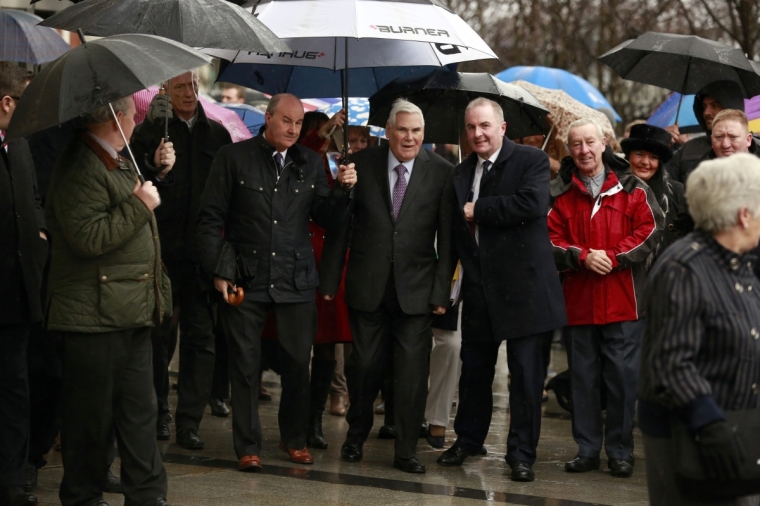BREAKING: Pastor 'not guilty' of insulting Islam

BELFAST (Christian Examiner) – After a lengthy trial in which a prominent Islamic cleric came to the defense of an Irish pastor's free speech rights, the pastor has been cleared of insulting Islam, the BBC has reported.
James McConnell, now retired, was found not guilty of "grossly offensive" remarks about Islam he made during a sermon at Whitewell Metropolitan Tabernacle in Belfast in 2014. According to prosecutors, McConnell violated the 2003 Communications Act, which prohibits irreverent speech about other races, genders, sexual orientations or religions, when he referred to Islam as "Satanic" and "heathen."
Had the sermon been delivered to a closed audience, McConnell likely wouldn't have faced charges. However, the sermon was being livestreamed over the Internet at the time, placing its content under the restrictions of the controversial communications law.
At the trial, the BBC reported, a judge said McConnell's remarks were offensive, but didn't rise to the level of being "grossly offensive" as the statute requires before punishment can be handed down.
The courts need to be very careful not to criminalize speech which, however contemptible, is no more than offensive. ... It is not the task of the criminal law to censor offensive utterances.
Outside of the court after the verdict was read, McConnell said he regretted the Muslim community's response to his comments, or their belief that he was "out to hurt them" by preaching the gospel.
"There was no way I was out to hurt them. I wouldn't hurt a hair on their head," McConnell said after being found innocent of the charges. "But what I am against is their theology and what they believe in."
McConnell said if preaching a similar sermon, he would have to say the same thing about Islam, but that he also would be mindful of the fact his words might be "hurting innocent Muslims."
The pastor, in fact, already offered a public apology to the Muslim community, claiming he "unwittingly caused" offense. In that apology, he said he was drawing attention in his sermon "to how many followers of Islam have, regrettably, interpreted the doctrine of Islam as justification for violence."
"As a preacher of the word of God, it is this interpretation of the doctrine of Islam which I am condemning," McConnell said. "I abhor violence and condemn anyone, of any faith, who uses religion to justify it."
McConnell had also said he believes in religious liberty and, for that reason, would not pay a fine if the court decided to punish him monetarily. That is also why Muhammad Al-Hussaini, a leading Islamic cleric in London, supported him.
Hussaini wrote in the Irish Times as the trial came to a close in December 2015 that, while he obviously does not agree with McConnell, he believes it is the "freedom of speech of Christians and Muslims to disagree and critique religious ideas that is on trial here – wherein lies the moral imperative to take a stand."
"The prince of classical Arab poets, Al-Mutanabbi, famously warns us, 'If you see the bared teeth of the beast, think not that the beast is smiling.' The monetized interfaith public relations industry has in certain cases become an arena of just such crocodile grins, where religious politicians ensure that speaking of prophetic hard truths about religious oppression is ever subordinate to the dictates of politically correct diplomacy," Hussaini wrote.
The judge in the case, Liam McNally, told the court he believed McConnell's passion for preaching led him to "lose the run of himself" – or to get carried away. He advised McConnell to be careful in the future.
On a positive note for free speech in the United Kingdom, McNally also said the courts have to be careful, as well.
"The courts need to be very careful not to criminalize speech which, however contemptible, is no more than offensive," McNally said, according to the BBC. "It is not the task of the criminal law to censor offensive utterances."